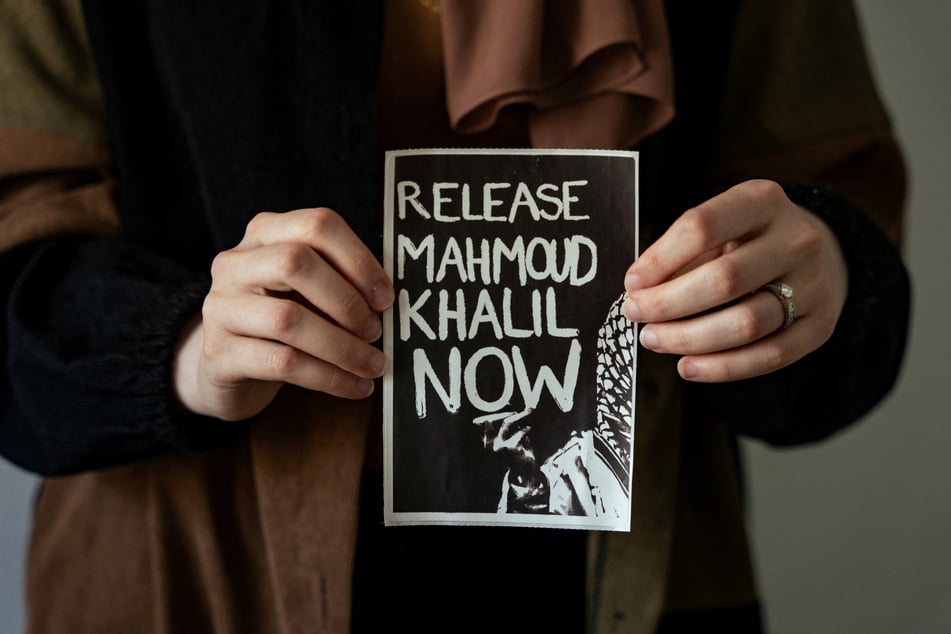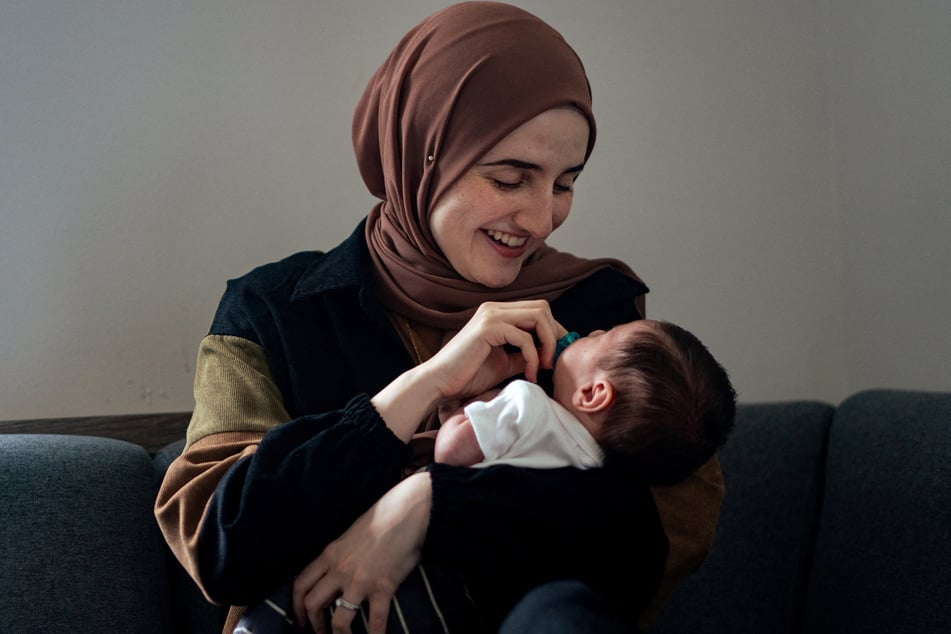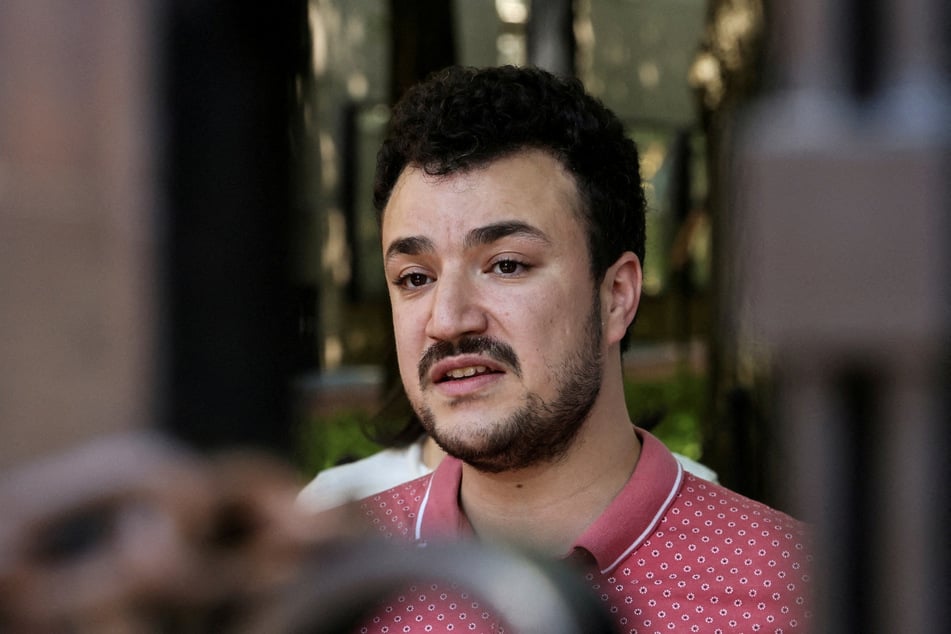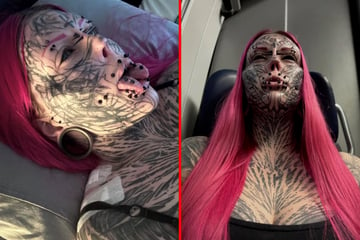Mahmoud Khalil lays out irreparable harm of detention in heartbreaking new court filing
Newark, New Jersey - In a sworn declaration, Palestinian rights activist Mahmoud Khalil laid before the court the irreparable harms he has suffered since his arrest, including the "devastating" pain of missing his son's birth.

"The most immediate and visceral harms I have experienced directly relate to the birth of my son, Deen," Khalil, who is Palestinian, wrote in a declaration filed Thursday.
The 30-year-old goes on to describe what it was like to miss Deen's first moments and to be away from his wife, Dr. Noor Abdalla, at such an important time.
"Instead of holding my wife's hand in the delivery room, I was crouched on a detention center floor, whispering through a crackling phone line as she labored alone," he said.
"I listened to her pain, trying to comfort her while 70 other men slept around me. When I heard my son's cries, I buried my face in my arms so no one would see me weep."
Khalil's declaration came after US District Court Judge Michael Farbiarz in New Jersey last week issued an opinion ruling that the recent Columbia University graduate student's detention was likely unconstitutional. The judge then requested more information on the irreparable harm he has suffered in order to rule on his release.
"Noor and Deen mean everything to me. To not be able to see them, hold them, speak with them freely, enjoy everything I imagined our first days as a family would be like, is devastating," Khalil told the court.
Mahmoud Khalil targeted for his Palestinian rights activism

Khalil remains locked up at the Central Louisiana ICE Processing Center in Jena as he challenges the constitutionality of his detention.
A US green card holder, Khalil was arrested by plainclothes federal officers – without a warrant – on March 8 at his New York City apartment building. Abdalla was eight months pregnant at the time of his abduction.
Khalil was a prominent member of the Palestinian freedom movement at Columbia and served as a mediator between student groups and the administration. His case is part of the Trump administration's crackdown on noncitizens at universities taking a stand for Palestinian human rights.
Citing an obscure provision in the Immigration and Nationality Act, Secretary of State Marco Rubio personally signed off on Khalil's arrest, claiming he poses a risk to US foreign policy interests.
"After Mahmoud was arrested and before I gave birth, many people posted awful statements online, including death threats, about Mahmoud, myself, and our baby. I saw these whenever I would read an article or social media post about our situation, and became afraid for our safety," Abdalla said in her own declaration.
"I didn't sleep during the two nights I spent at the hospital after giving birth to my son because I was too worried that if my baby left my side, someone might take him away from me."
In addition to Khalil and Abdalla's statements, the court received declarations from over 20 Columbia students and professors testifying to the chilling effect Khalil's detention has had on campus life. Others speak to the increase in anti-Muslim and anti-Palestinian sentiment tied to racist, Islamophobic depictions of Khalil and his family.
Mahmoud Khalil details additional harms stemming from arrest

On top of separating him from his wife and child, Khalil's declaration details other ways in which the Trump administration's actions have harmed him personally, including his career and future job prospects.
Days before his arrest, he said he had accepted a position at Oxfam International as a Palestine and Middle East/North Africa policy advisor. The employment offer has since been revoked.
Khalil has long dreamed of working in diplomacy and public service. Allowing the Trump administration's label to stand would be "career-ending," he said, as his reputation and ability to obtain travel visas are at stake.
The accusations against Khalil also have wider implications for his family relations. His mother had a visa approved to visit the US to meet her new grandson, but she was notified after her son's arrest that her case was under administrative processing. He also fears he will no longer be admitted to enter Germany to visit his 70-year-old, severely disabled father.
Khalil further wrote that his detention prevents him from "protesting the ongoing genocide of the Palestinian people – my own people – a fundamental aspect of my freedom of expression that is deeply important to me."
Though Khalil has continued to speak out for Palestine, he has "extreme fear" of surveillance and punishment for his expression.
"I believe in the innate equality of all human beings. I believe in human dignity. I believe in the right of my people to look at the blue sky and not fear an impending missile," Khalil insisted.
"Why should protesting this Israel government's indiscriminate killing of thousands of innocent Palestinians result in the erosion of my constitutional rights?"
Cover photo: REUTERS

